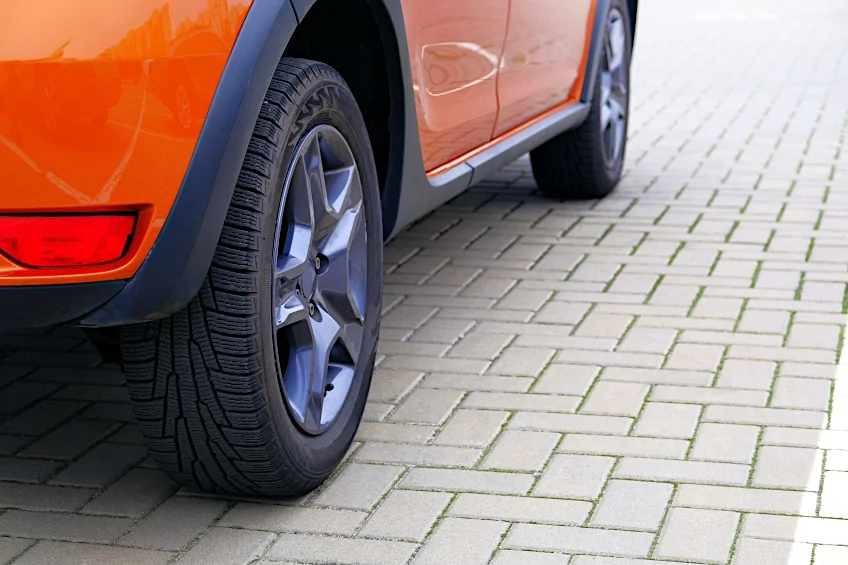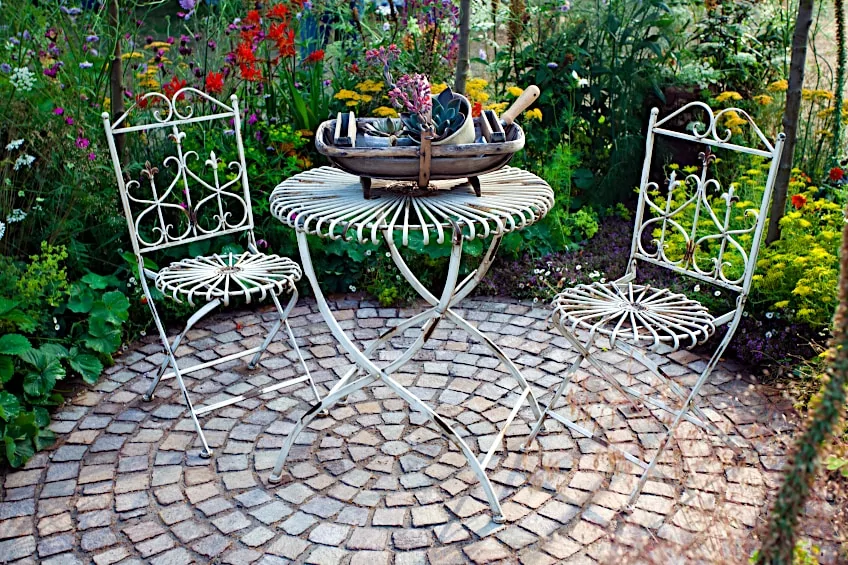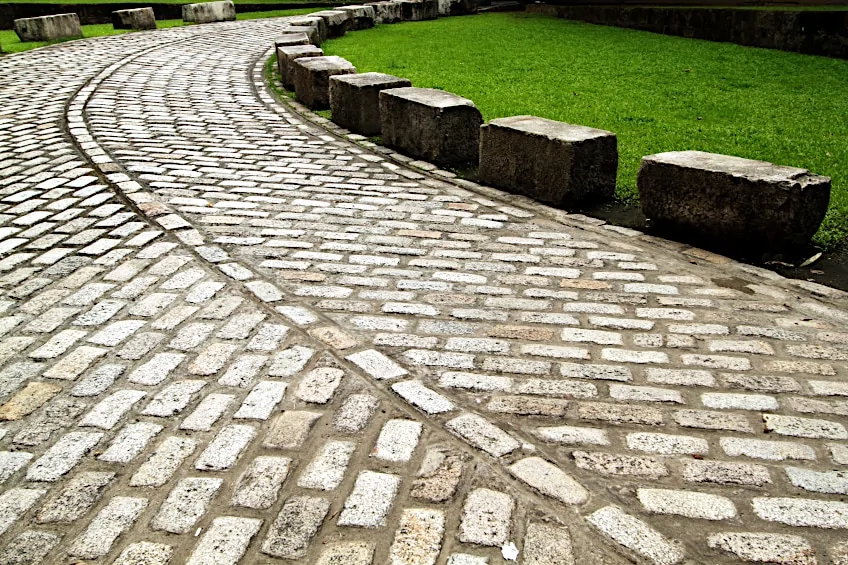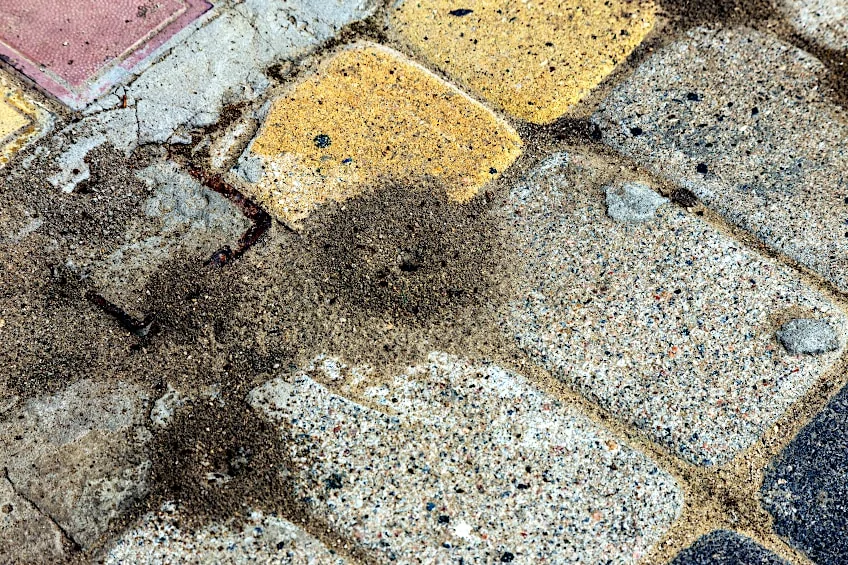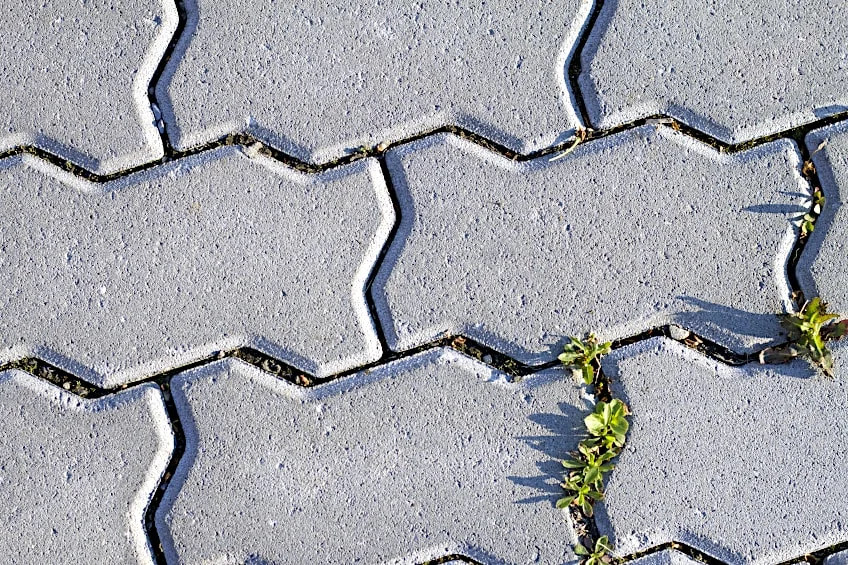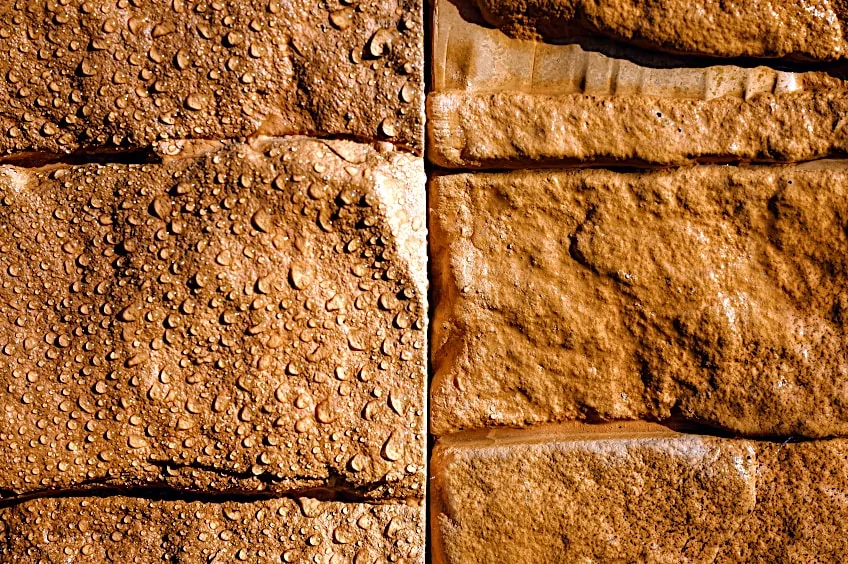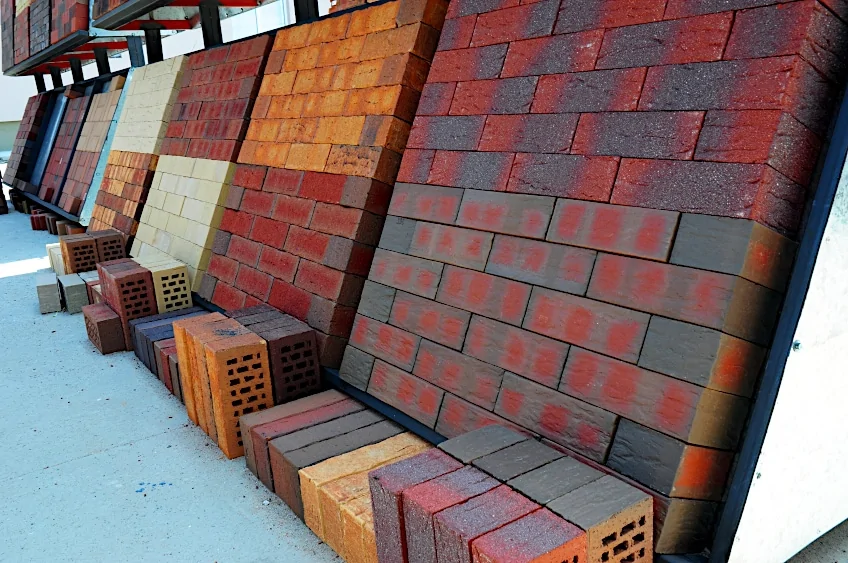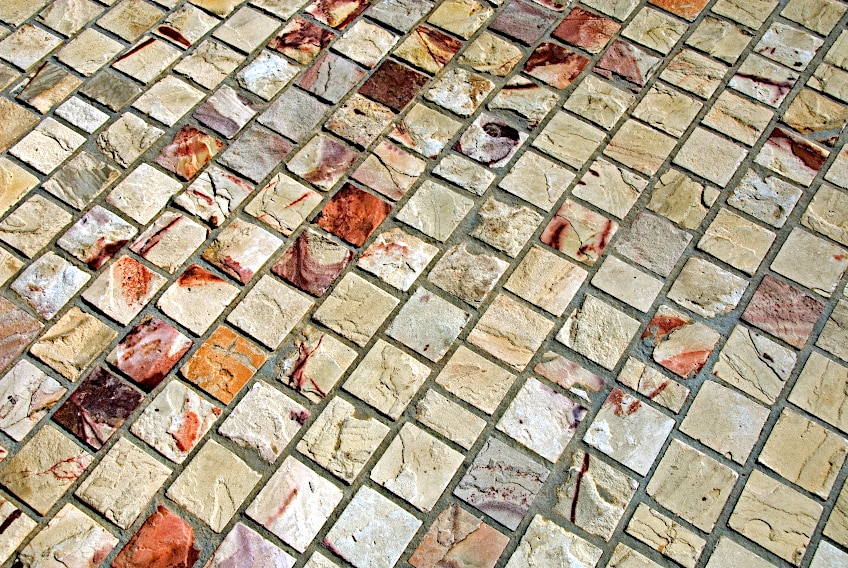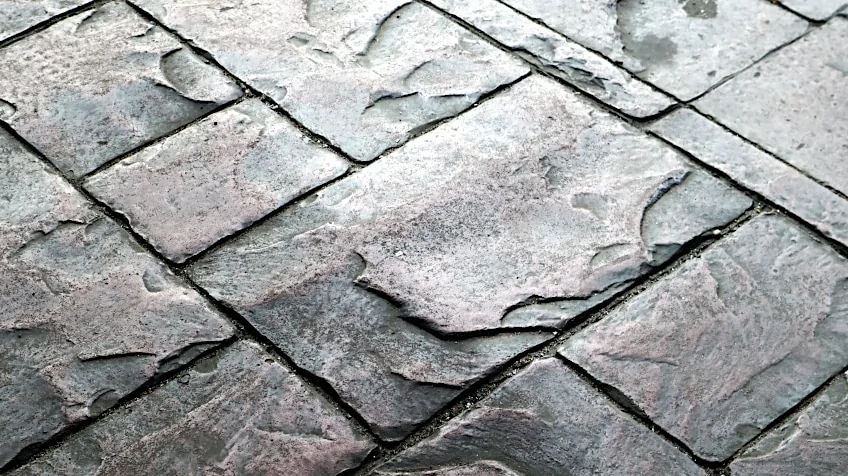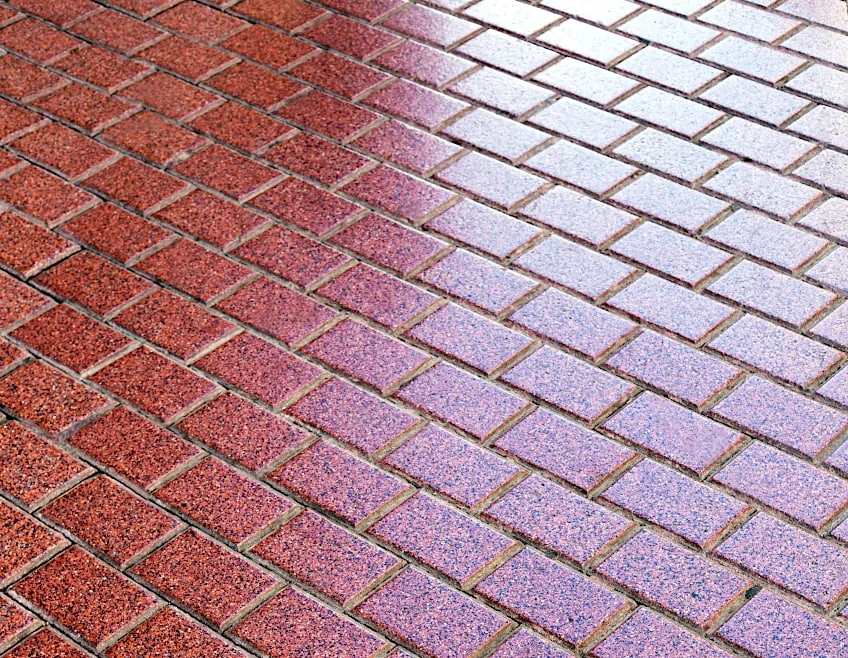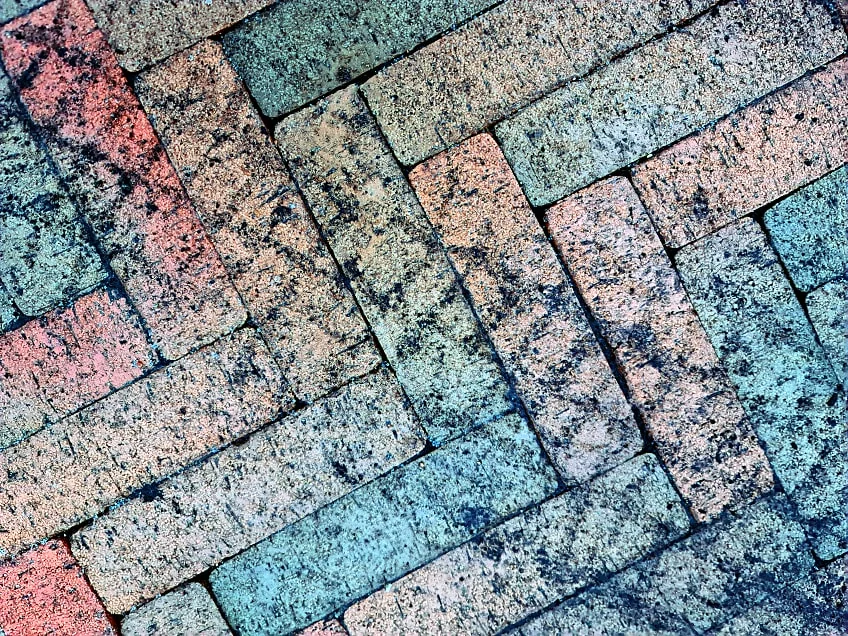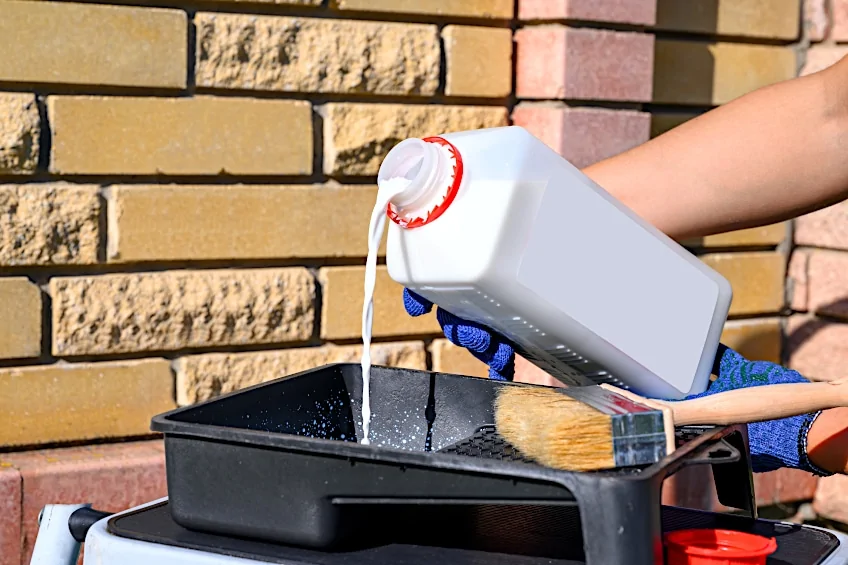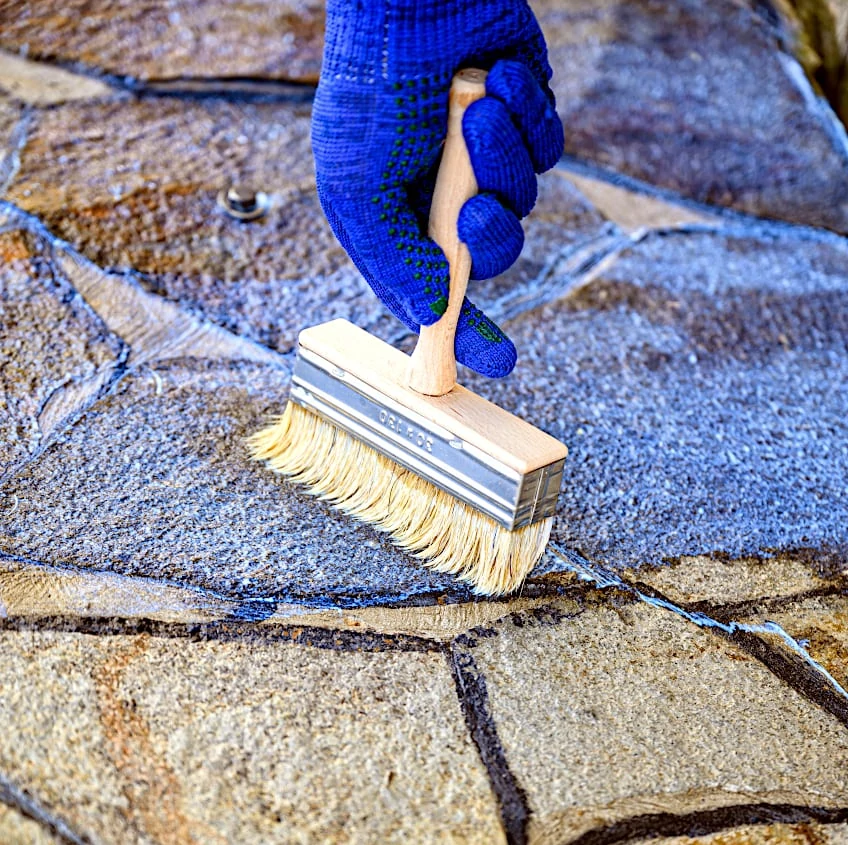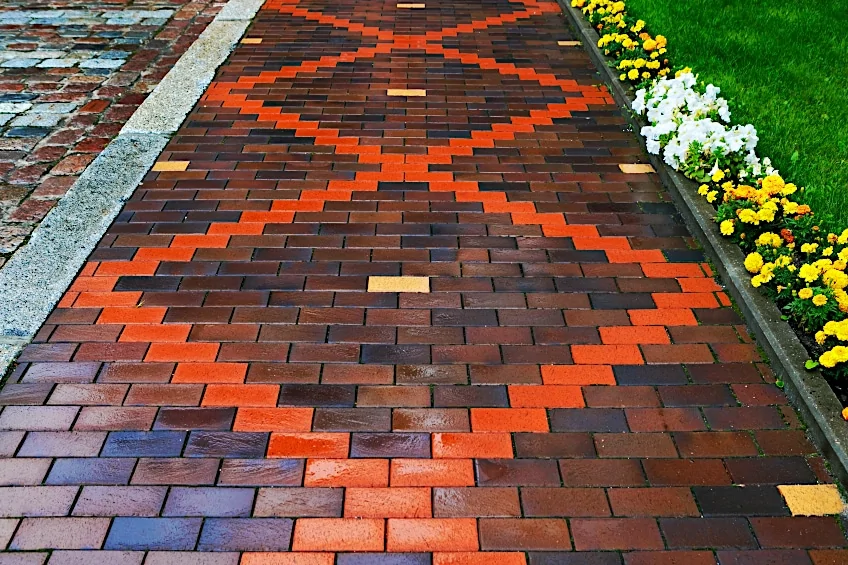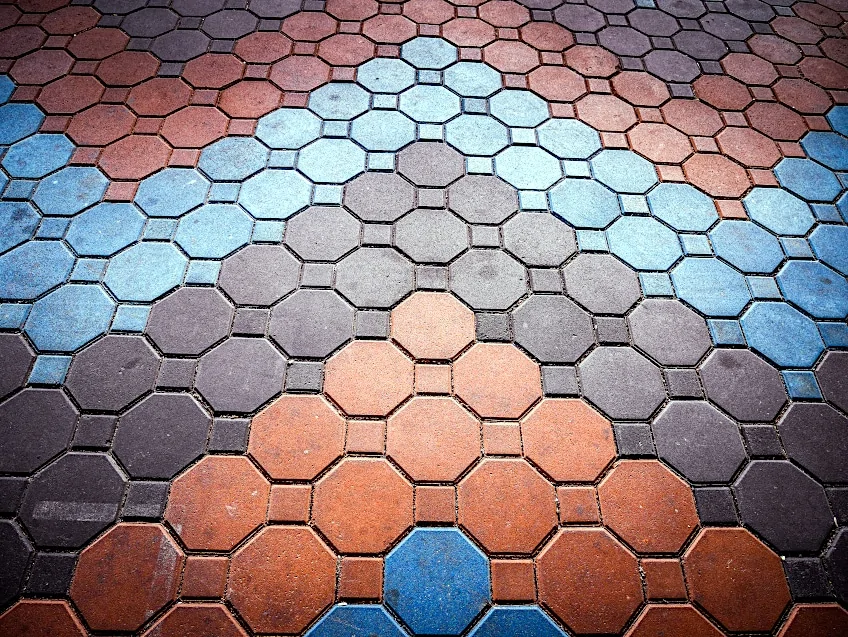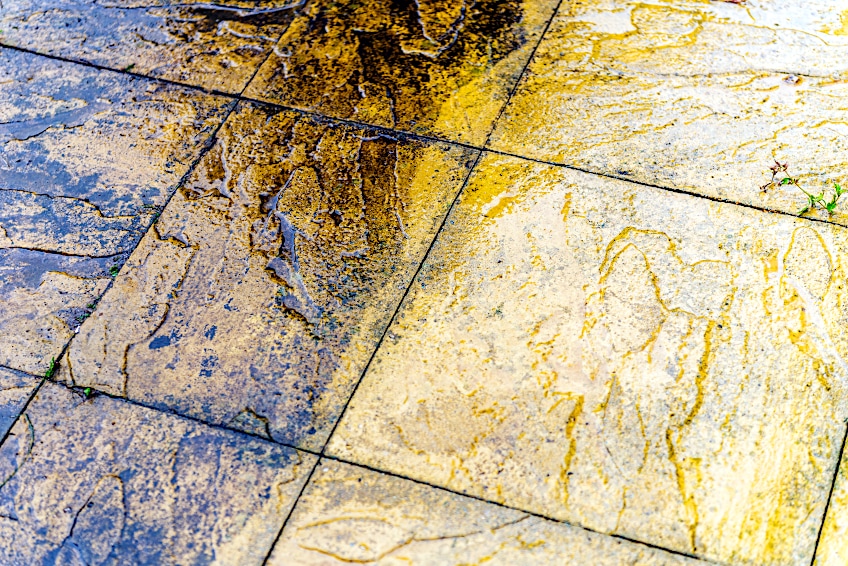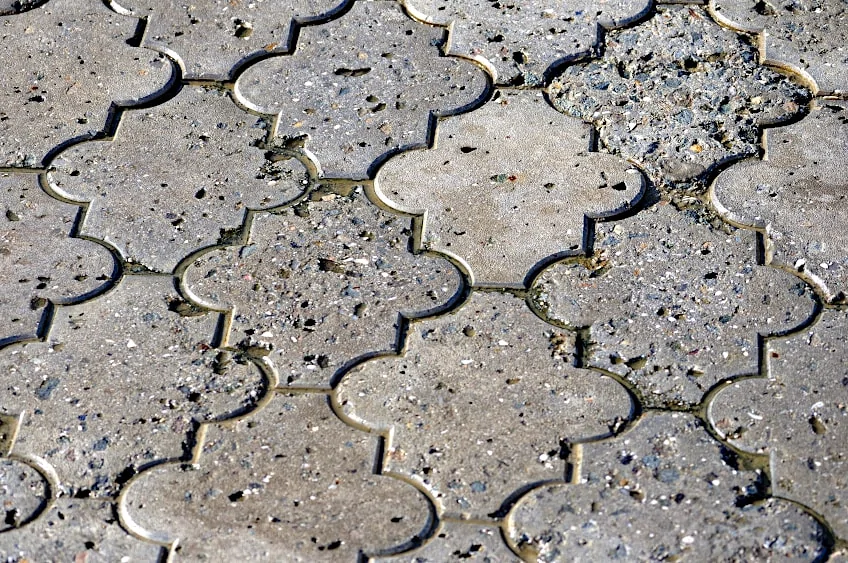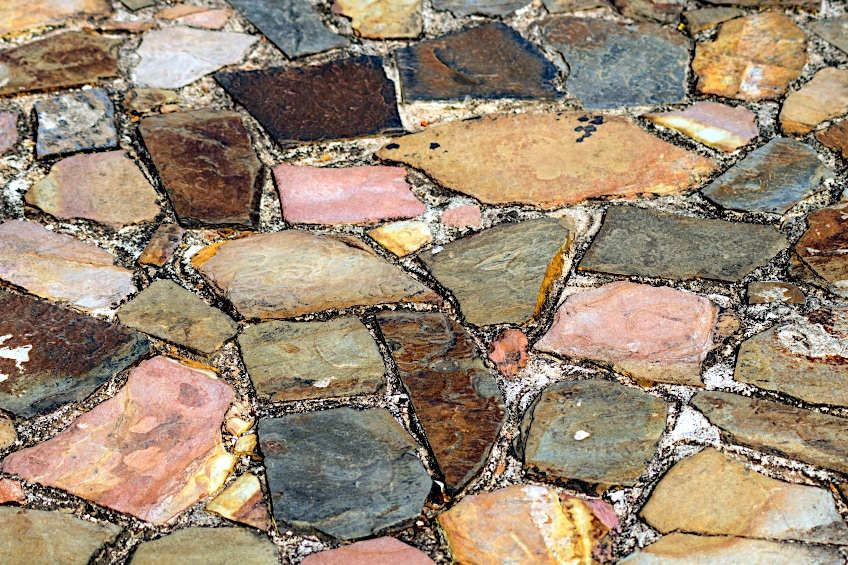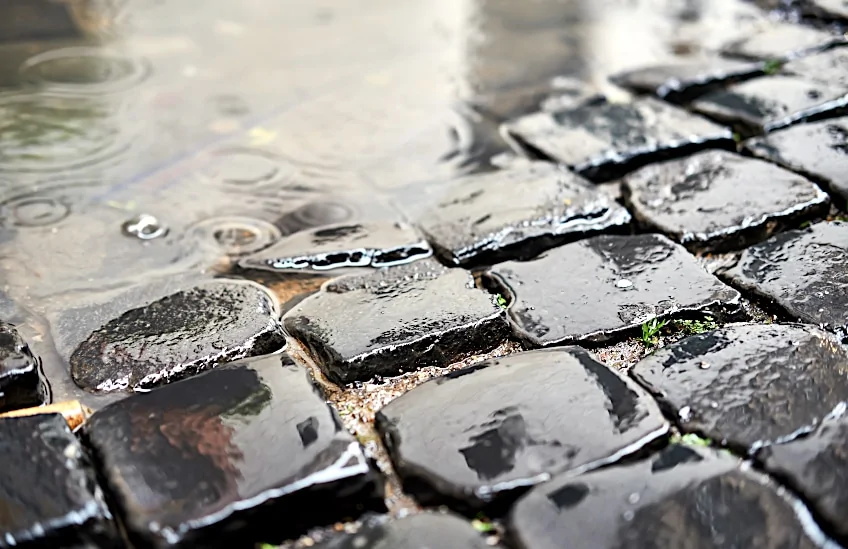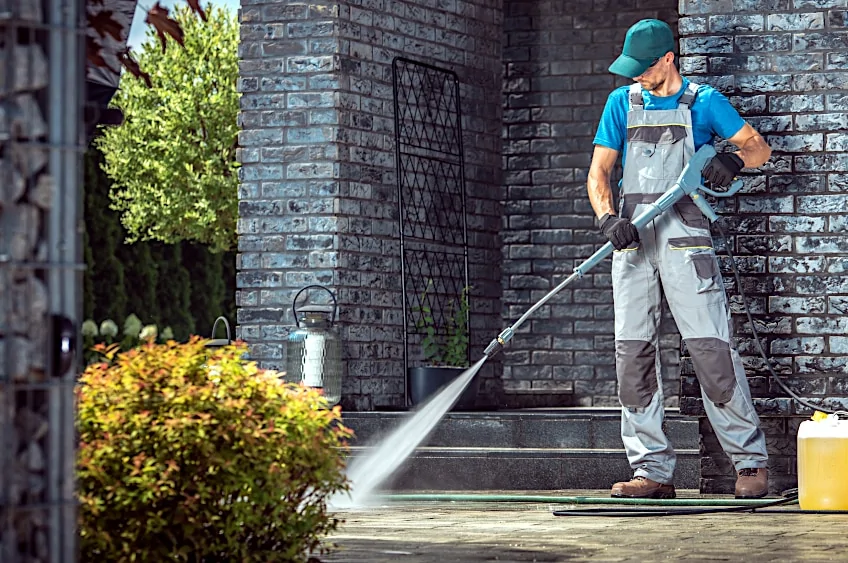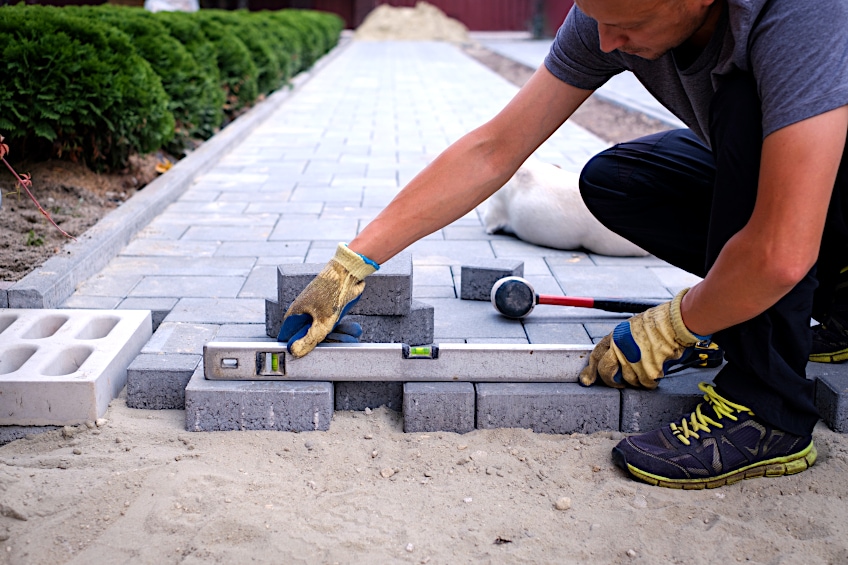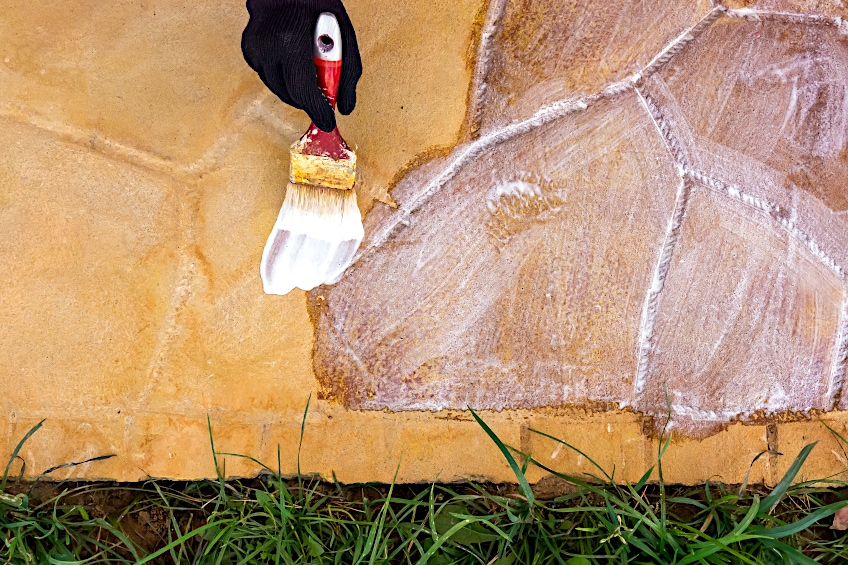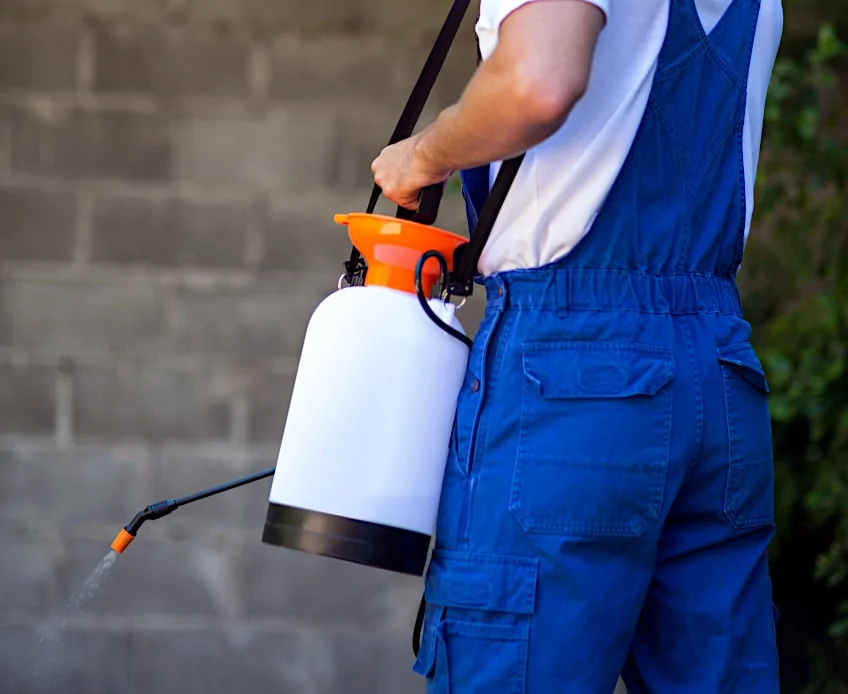Best Paving Sealer – Protecting Your Brick, Stone, and Concrete Pavers
This post may contain affiliate links. We may earn a small commission from purchases made through them, at no additional cost to you. You help to support resin-expert.com
What is the best sealer for pavers? For hundreds of years, we’ve been obsessed with paving. As a species, we have had paved roads since around 6000 BC, and we’ve come a long way since we managed to arrange cobblestone for our horses and carts to amble along. While paving, the quality of the stone used to make them is important, even more so is the type and quality of sealer used to seal your paving. This being said, let’s have a look at why you should be sealing your paving, what a good sealer should offer you, and what some of the good sealers on the market right now look like.
Table of Contents
Why Should You Seal Your Paving?
Should you buy sealer for pavers? In the interest of maintaining your paving and ensuring that you don’t buckle the wheels of your car, you should always seal any paving that has been installed, especially if your paving is exposed to conditions that could possibly cause degradation like water and sunlight, as most home and office paved areas are.
Why should you seal your pavers though? Paving, in general, is seen as an investment, if not a financial one then one that ensures that you have a low maintenance surface for the foreseeable future that in all honesty will likely outlast you and anything else you own. Seems like a good investment, right?
So why wouldn’t you want to protect this worthwhile investment? Well, if you’ve never owned paved surfaces before, or recently found yourself having to live with them, you probably don’t know much about them. Paving, although tough, is susceptible to all sorts of damage, from water damage to UV damage and even general erosion can cause considerable damage to your paving.
This type of damage won’t be apparent immediately, but if you monitor unpaved surfaces over the course of a few months you’ll notice signs of erosion and degradation which can become even further exacerbated as time goes on.
What does sealer for pavers do to protect your surfaces from erosion? As the name suggests, sealer seals the surface of your paving for exterior forces and more importantly seals in the soil beneath the paving which ensures that things like weeds and sprouts don’t have the opportunity to germinate and pop up between the gaps in your paving.
The sealer actually fills the gaps between your pavers and seals them completely, which not only prevents things from popping up or getting stuck between them but also ensures that your pavers don’t shift out of position over time.
Paver sealer does more than ensure that plants don’t pop through your pavers; they also ensure that your paving stays in one place and doesn’t crack. If you’ve ever tried to clean up things like motor oil or house paint from a paved surface you know that it can be extremely challenging.
Paver sealer creates a protective barrier over the surface of your paving, which makes these little accidents much easier to clean up, this is because substances don’t get the chance to seep into the pores or into the gaps between your pavers.
If you’re wondering if applying paver sealer by yourself is a good idea, it really depends on your skill level and how comfortable you are with an exercise of this scale. Paver sealer is pretty expensive, and if applied incorrectly you would need to remove everything and start again, which is labor-intensive, to say the least.
This being said, applying paver sealer on your own isn’t impossible, and you might even save a few bucks doing it on your own. Besides, nothing beats the feeling of looking at a well-paved surface knowing you did it all on your own. If you do decide to take a shot doing it on your own, remember to read up on the type of paving you’ll be working with and which type of paver sealant suits it best.
Types of Paver Sealer
While sealer might be a sealer to you right now, there are, in fact, different types of sealers available for different surfaces and various applications. Different sealer types have their own advantages and disadvantages depending on the conditions they’re exposed to at a given time and the material they’re coating. This being said, let’s have a look at the different types of sealer available to you and how you can exploit their properties to protect your pavers and any other surface you find that might need some protection. Even though pavers are available in a variety of colors and textures, there are primarily two types of pavers that are used for home or commercial applications. Let’s have a look at them.
Film-Forming Sealers
If you’re looking for a sealer that’s easy to apply and gets the job done, then this type of sealer might be what you’re looking for. Film-forming sealers (as their name suggests) form a layer of resin over the surface of your pavers that protect them from things like general erosion, moisture, UV exposure, and the odd spill.
These types of paving sealers are readily available and don’t really need any prior experience to apply, although you’d be doing yourself a favor if you looked at a tutorial or two. These types of sealers are also the easiest to maintain of the two sealer types, which means you won’t have to get a professional to do the job for you every few years.
Film-forming sealer does affect the texture of your pavers ever so slightly, so if you’re a purist, and love the feel of stone, this might not be the best option for you.
Penetrating Sealers
On the other end of the spectrum, we have what is known as penetrating sealers. The primary difference between this type of sealer and film-forming sealers that we mentioned previously is that they penetrate far beneath the surface of the stone in an attempt to protect them from their immediate environment.
Just like the film-forming sealers, these do protect the surface of your pavers from moisture, oil, UV damage, and general erosion, but they also penetrate deeply into the pores of a stone to ensure that nothing gets into these little recesses.
Penetrating sealer is often used on natural stone finishes like marble or granite flooring because it allows them to retain their texture while offering the same level of protection that film-forming ones do.
This type of paver sealant can be more challenging to apply which is why most people simply have it done by a professional, but this doesn’t mean that it’s impossible to do on your own, it simply requires great focus and precision. Penetrating sealers can be used for both indoor and outdoor applications.
Solvent-Based Sealers
If you’re an environmentalist interested in paver sealers have some bad news for you. All sealers (to some degree) contain volatile organic compounds (VOCs). Solvent-based sealers in particular contain these in high amounts which means they aren’t great when topics like greenhouse gas emissions and smog come up in conversation.
Why are they still used then? Well, like most things that are harmful to the environment, they are useful, and it’s been difficult for manufacturers to find a suitable replacement for them throughout the years. This being said, there are other types of sealer available that offer varying levels of protection against external forces.
This sealer is unique in its finish, it is highly resistant to things like moisture and oil spillage which is great if you haven’t taken your car for service recently, but it also offers a finish that tends to have a strong sheen. This is awesome if you have a stone or brick finish that you’d like to preserve like marble or granite, but you will sacrifice the feel of the stone due to how thick solvent-based sealers tend to cure.
Cleaning up solvent-based sealer can be a real challenge too, considering the fact that it does not degrade when it comes into contact with water or oil. You won’t get everything off simply scraping it either, as it’s kind of designed to be impervious to abrasion and impact.
Thus you’ll likely have to get your hands on a solvent conducive to removing the particular type of solvent that was used as the base for your sealer if you make a mistake applying it.
Tricky, right? Maybe, but solvent-based sealers do offer what is essentially a lifetime of protection against wear and tear and are available in both surface and penetrating variations, so it tends to be well worth the drawbacks.
Water-Based Sealers
In woodworking and crafting, there are loads of water-based coals which are used to coat workpieces for both protective and aesthetic needs. These coatings are typically known as acrylic or latex-based coatings as they are thinner and contain far less volatile organic compounds compared to coatings like oil-based and solvent-based sealants.
Water-based sealants work a bit differently compared to most sealers. Although water-based sealants contain water, this component does not form part of the protective layer, nor does it play a role in impregnating the surface of the workpiece.
Instead, water-based sealers use water as a catalyst for ease of application, so once the sealer has been applied to the surface of your workpiece, the water evaporates and the sealer itself moves closer together causing the substance to become denser, which inevitably leads it to sink into the pores and crevices of the workpiece.
Applying water-based sealer can be a bit disconcerting, it tends to look off-white in appearance and might not look like it’s doing much of a job sealing your surface, but once it’s been spread and allowed to set and cure, you’ll be on your way to a well-protected surface.
Water-based sealers actually cure clear, which means you’ll be able to see the paver underneath, and what’s more is that they usually have a matt finish which is perfect if you’re in the market for a look that’s sophisticated yet understated.
Water-based sealers are a great alternative to solvent-based ones because they contain far fewer VOCs, they also have less of an odor, and are significantly easier to clean up compared to other sealer types.
Because they contain fewer VOCs, water-based sealers are less likely to interact with other substances negatively, therefore they are less flammable and less likely to act as an irritant.
Polyurethane-Based Sealers
Polyurethane sealers have been around for a really, really long time. In the woodworking industry, professionals and DIY enthusiasts alike swear by this seemingly miracle sealer. Polyurethane is really easy to apply and creates an air-tight seal between the surface in question and the immediate atmosphere.
This isn’t conducive for stone types that need to breathe, but for things like brick and limestone, it’s the perfect sealant that preserves the aesthetic impact of your paver while providing a non-yellowing coating capable of protecting your workpiece from oil, water, UV damage, abrasion, impact, and is resistant to damage from fires.
The great thing about having a sealer like this lying around is that you won’t be limited to using it on pavers alone, in fact, you could use this sealer to seal up your wooden furnishings, doors, windowsills, and exterior decks. All without half the trouble you would face when attempting to use a dedicated sealer for the job.
Polyurethane sealers are available in both solvent and water-based variants and are readily available for purchase both online and in-store. Polyurethane sealers are capable of being tinted too, so if you’re ever in the mood for something unique you can add a bit of color to your polyurethane (PU) coating which will change when your surface interacts with natural or artificial light sources.
Because this type of sealer is so robust, you can usually find it in high traffic areas, it’s also easy to maintain and doesn’t create as much of a mess as one might expect from polyurethane. In fact, polyurethane coatings are resistant to chemical damage too! This means you can use regular cleaning chemicals without having to worry yourself about it eating away at your sealer.
Sealer Comparison
Now that you know what some of the key differences between water-based sealers and solvent-based sealers are, you’re probably wondering how they stack up against each other. Rather than you having to sort through their characteristics yourself, we’ve made a nifty little table so it’s that much easier for you to decide which sealer type is best for your next paver project.
| Characteristics | Solvent-Based Sealant | Water-Based Sealant | Polyurethane-Based Sealant |
| Water-Resistant | ✔ | ✔ | ✔ |
| Oil-Resistant | ✔ | ✔ | ✔ |
| UV Blocking | ✔ | ✔ | ✔ |
| Easy to Apply | ✘ | ✔ | ✔ |
| Contains VOCs | ✔ | (Very few) | (Very few) |
| Graded for Indoor and Outdoor Use | ✔ | ✔ | ✔ |
| Penetrates Surface of Pavers | ✔ | ✔ | ✘ |
What Is the Best Paving Sealer on the Market?
What is the best paving sealer? Paver sealers come in all shapes, sizes, colors, and types. While it’s easy to assume that these are the only differences between paver sealers, they can also vary considerably in quality and durability. We’ve decided to provide you with some of the best paver sealers money can buy, so have a look at these three paver sealer reviews and decide whether they’re cut out for your next paving project.
Best Overall: DOMINATOR LG+ Wet Look, Color-Enhancing Low Gloss Paver Sealer
There are products that claim to do a really good job but when you get down to it, they simply don’t live up to all the hype they’ve built up around themselves. The Dominator team seems to have gone out of their way to ensure that this is not the case with their low gloss paver sealer solution.
This high-quality paver sealer seems to have gone above and beyond in an effort to protect your pavers from virtually any force they might come up against (within reason). Like most paver sealers Dominator provides protection for your pavers against things like moisture, oil, UV damage, abrasion, impact, and even chemical damage.
This sealer is perfect if you’re looking for a professional finish without the hassle of having to hire someone to do it for you and to make it worth your while, this particular sealer from the dominator team provides you with a long-lasting coat so you’ll avoid touch-ups and maintenance for as long as possible.
If you’re looking to seal up some exposed paving, this is one of the best paver sealer products on the market, especially for beginners! Dominator’s paver sealer can be applied with a sprayer which makes it the ideal package for beginners that don’t have the time or skills to apply their sealer with a roller or brush.
What’s more, is that dominators sealer contains little to no VOCs and can be applied indoors without the need for air fresheners or having your air-conditioning on full blast thanks to its low odor formula.
It’s also the ideal sealer to have if you’re pressed for time or have a time-sensitive project that you need to get out of. How so? Dominators have Designed their wet look sealer to be fast-drying, and if you still aren’t impressing, this particular sealer from the Dominator team comes equipped with a color enhancing formula to ensure that you have the best finish for all of the pavers you treat.
- Water based, film forming sealer for long lasting UV protection
- Covers from 250 to 400 square feet per gallon, per coat
- Depending on environment, sealant can last from 2 to 4 years
- Easy to use
- Versatile
- Long-lasting
- Enhances color
- Low odor
- Protects against UV, moisture, oil, and abrasion
- Can be applied with a sprayer
- Very few VOCs
- Fast drying
- Only available in one color
- Cannot be applied to low porosity stone
- Cannot be applied in low temperatures
- Only available in semi-wet look
Best Value: MASONRY DEFENDER Low Gloss Patio Paver Sealer
IF you’re looking for a sealer that offers all of the luxuries of a well-recognized brand at a fraction of the cost, we think that a low-gloss patio and paver sealer from the Masonry Defender team might be what you’re looking for.
This brand is a subsidiary of a company known as Saver Systems, who offers a variety of stone protection products for everyday and commercial use, including wood finish products, chimney stone protection, and even deck sealing products all under their high quality (and more importantly affordable) brand name.
Like most high sealants for concrete pavers, Masonry Defender offers a finish that not only looks good but is highly durable, which means you won’t have to avert your eyes from the finish every morning in the interest of protecting your surfaces. In fact, the low gloss patio paver sealer dries completely clear even though it appears off-white when it’s applied initially.
This is awesome as you won’t have to waste any time thinking about whether or not your sealer matches the finish of your pavers, and what’s more, is that this sealer has little to no odor before and after it’s been applied to your surfaces which means its considerably easier to apply in indoor settings.
Masonry defender has ensured that this sealer not only offers a great look, but superior protection from things like UV damage, moisture, corrosion, and excessive exposure to heat, like any good sealant for concrete pavers should.
This is an acrylic sealer which means it’s water-based, and while some sealers in this vein tend to yellow over time, the Masonry Defender team have gone out of their way to ensure that this formula will not yellow even when exposed to direct sunlight for hours at a time.
Considering that this formula is water-based and is graded for use in sprayers and pumps, beginners might find the learning curve with this product is significantly shorter, although the quick-drying formula might leave newbies a bit panicked, so we recommend building up some confidence before you try your hand with this one.
The party piece of this product? It provides a low gloss sheen that adds an angular reflective finish to your pavers, not to mention that once it hardens it acts as a stabilizer to ensure that your paving doesn’t move around the first-time weight has been applied to it.
- Invisible, non-yellowing, VOC compliant, waterproofing protection
- Low gloss finish and helps prevent color loss on stone pavers
- Protects pavers while stabilizing the joint sand
- Easy to use
- Affordable
- Protects against UV, moisture, heat
- Acts as a stabilizing agent
- Defends against corrosive agents
- Non-yellowing formula
- Dries clear
- Fast-drying formula
- Low odor
- Only sold in two volumes
- Does not penetrate the stone surface
- Needs to be maintained regularly
- Container can be challenging to manage
- Finish varies depending on the stone
Best Finish: FOUNDATION ARMOR Solvent Based Acrylic Wet Look Concrete Sealer
Some sealers offer a wide variety of characteristics that can be perceived as beneficial but ultimately don’t account for much in the real world. Is it nice to have a sealer that protects your surfaces from things like fire and corrosive chemicals? Sure, but then again, most of us aren’t running meth labs in our spare time (we hope) so these features can seem like overkill to the person that just wants the bathroom floor or driveway to be sealed from the elements.
Not everyone’s needs are this simple though, if you are running a business from your home like an automotive garage or transporting heavy goods, you might need something a bit more robust. This is where Foundation Solvents come in, they offer a range of highly durable sealants for brick pavers that could take quite the licking if it ever came down to it.
Unlike some of the other products we covered previously, this sealant is a solvent-based which means although it might contain lots more of those nasty VOCs, it is extremely durable, in fact, it’s so robust that it can be applied to virtually any stone surface without the need for primer, just get out your sprayer or roller and pop it onto the surface in question.
This product is ideal for coating large surfaces in a short period of time, which is probably why this sealant for brick pavers is so popular among contractors. Although this isn’t graded as an industrial-grade product (you can purchase from Amazon after all) it seems like it would be right at home in a contractor’s tool rack and probably is.
You could go as far as to apply this sealer straight over an existing finish according to the Foundation Armor team, and what’s more is that this sealant is non-yellowing once it’s been applied, so you could use it on larger exterior surfaces like interior courtyards or large stone-floored halls to get that high-quality sheen finish we all know and love.
Funny enough, this sealant main focus doesn’t seem geared toward the finish at all, as most of its advertised characteristics are focused around how hard-wearing the finish is, which according to the Foundation Armor team can last for up to 3 years of consecutive use before needing to be touched up. Interior surfaces are estimated to last up to seven years and are resistant to damage from moisture, UV, heat, abrasion, impact, and certain chemical spills.
- The Armor AR350 is a breathable, non-yellowing solvent based acrylic
- Provides a long lasting, durable low gloss finish
- Self-priming and can be applied to unsealed concrete
- Easy to use
- Can be applied without priming
- Can be applied over existing finishes
- Highly durable finish
- Does not yellow over time
- Graded for interior and exterior use
- US-based company
- High gloss finish
- Protects against oil, moisture, heat, and chemical damage
- Contains VOCs
- Does not protect against UV damage
- Can be challenging to apply without a sprayer
- Made from non-recycled resins
- Exterior applications need to be reapplied regularly
What Should You Consider When Purchasing a Sealer?
Most paver sealer reviews simply tell you how a product performs and how they compare to other products in their respective class. How do you know what to look for in a sealer though? We’ve compiled a list of a few things you should look for when considering a sealer for your next paving project, so let’s have a quick look at them.
The Finish
Besides the protective nature of the sealer, the aesthetic finish is typically a characteristic that makes or breaks the sale for loads of professional crafters and DIY enthusiasts alike. Paving isn’t exactly cheap, so applying a finish that looks objectively awful isn’t really an option for most of us.
Choosing a finish can be somewhat challenging when one considers just how many finish options are available for paver sealers. Primarily, there are three types of finishes available or paver finishes, these are matt finish, low gloss finishes, and high gloss finishes.
Depending on your personal preference and the forces in your immediate environment, you could opt for either one of the finishes or a combination, as high gloss finishes reflect light, low gloss finishes reflect very little light and maintain the original aesthetic of the paver, while a matt finish reflects little to no light and can alter the overall texture and look of the paving it’s been applied to.
Regardless of which finish you choose; most professionals opt for penetrating sealers to maintain most of the stone’s natural look while adding a fun finish.
Surface Friction
Surface friction is essentially how much grip a surface has. High surface friction means that a surface can facilitate weight and traffic, causing objects or people to slip and fall. When applying wet-look pavers they can often look quite slippery, which might not inspire confidence, but it can make a few people nervous.
On the other hand, this finish does open up smaller spaces really well, which is why they are often used in smaller areas to make them feel bigger, or big areas to make them feel even bigger.
If your surface genuinely is slippery, you have the option of adding an additive to your pavers beforehand to give them some more grip before your sealer is applied to the surface.
Lifespan
Lifespan refers to how long a sealer will last on your pavers. Most pavers tend to last for about three to five years before they need to be touched up or resurface completely. Ultimately, what determines the lifespan of your sealer will be how much traffic your surface sees and whether it’s an indoor or outdoor surface.
Indoor surfaces tend to last a bit longer compared to outdoor ones because they aren’t exposed to as many exterior forces like wind and rain that wear down a surface over time. Bi-annual touch-ups are advisable for outdoor sealants for this very reason, and they might end up saving you some of your hard-earned cash in the long run.
Using a film or surface sealant for your exterior pavers is always a good idea as this allows the sealer to degrade while preserving the paver itself. If you suspect that your sealer is wearing out, a good indicator is a slight change in color over time.
Drying Time
Drying time is dependent on a lot of conditions, but overall, the most influential of these conditions are cold weather and extreme humidity which will cause your sealer to take significantly longer to dry out. The sealer dries when the water or solvent in the substance evaporates, causing the heavier particles to sink into the paver itself.
While most pavers, whether solvent or water-based, dry in around eight hours, the full cure time of virtually all sealers is a full 24 hours. At this stage the surface is ready to be used, so always ensure that you follow the manufacturer’s recommended cure time before using your newly sealed surfaces.
How to Use Paver Sealer Effectively
Sealing pavers can be a really straightforward exercise or it could result in you making a mess that’s really difficult to clean up. Ensure that you know whether your sealer can be applied with a roller or brush and ensure that you prepare your workspace and pavers adequately beforehand.
Clean Your Surfaces
Cleaning your surfaces is of utmost importance. Pavers tend to attract a lot of dirt, which isn’t good if you’re trying to coat the surface with a sealer. Applying a sealer means that you have to have a reasonably clean surface, as anything that isn’t removed will be trapped underneath the surface of the sealer. This being said, do your best to clean your pavers either with a power washer or by scrubbing them down manually.
Do your best to remove any excess soap or sand from the surface of the pavers either using a broom or compressed air, although the latter might result in more sand being kicked up from the grooves beneath the pavers.
The goal is to remove as much dirt and grime as possible, the best way to go about this is to brush or spray in the direction the pavers have been laid. Ensure that your pavers are as dry as possible before moving on to the next step in the process.
Level Your Surfaces
This is a pretty straightforward exercise. Ensuring that your surfaces are level allows you to apply your sealer with greater ease as any gradients will cause the sealer to bunch up, which can take considerable time and effort to even out especially if you’re using a napped roller to apply it.
It is not always necessary, but you could try using a spirit level to ensure that your pavers are thoroughly leveled out. If you don’t have a spirit level handy, simply lay an object with a long flat surface over the paving and check for any discrepancies in height. This shouldn’t take very long, simply adjust the height of any outlying pavers while trying your best not to disturb any of the surrounding pavers.
Seal Your Surfaces
It’s finally time to get to the part you’ve been waiting for. Start by sectioning off your work area, this will allow you to focus on getting all the edges and crevices with your sprayer, brush, or nap roller.
You can mark the sections to be sealed mentally (not recommended) or with little markers at the edges of your paving.
Once you have your areas marked off, prepare your sealer according to the manufacturer’s instructions and either pour it into your sprayer or get some on your brush or nap roller. If you are using a roller, ensure that you don’t oversaturate your roller with sealer.
Using a Sprayer
If you’re using a sprayer to apply your paver sealer the best approach is slow and methodical, just until you get the hang of it. Pick a section that you’re like to start with and apply moderate pressure to the trigger while applying the sealer in a circular motion from one end of the paving to the other.
Sealer is a lot thicker compared to paint, so there might be more than a little splatter in the beginning. Continue this section by section and allow the sealer to dry and cure completely for the manufacturer’s recommended time period before utilizing it.
Using a Roller
Applying sealer with a roller might be a bit trickier on paver than it would be with a surface that is flusher, such as marble or granite, but it’s not impossible. Get some paint onto your roller by rolling it around in a paint tray filled with your sealer, once you have some on your roller start by applying your sealer section by section from one end of the paving to the other.
Avoid applying excessive pressure to the roller as this might accidentally squeeze out more sealer than you intend to apply. Continue this process, ensuring that your sealer has been applied uniformly across each section until all of your pavers have been sealed adequately. Allow the sealer to set and cure for the manufacturer’s recommended time period before utilizing the surface in question.
Now that you know what a paver sealer is, why it’s always a good idea to apply paver sealer to your stone surfaces, what to look for in a paver sealer and what a good paver sealer looks like it’s time for you to get out there and put your new-found knowledge to the test. Remember to always choose a sealer that will suit the overall environment of your paving, and to always work in a well-ventilated area with the appropriate personal protective gear when working with substances that could potentially cause discomfort.
Frequently Asked Questions
What Is the Best Sealer for Pavers?
What is the best sealer for pavers? Each type of paving is unique, paving is typically made of different types of stone all of which respond differently to various sealers. The best sealer for granite might not be the best sealer for limestone or brick, so the best sealer is the one that was formulated specific for the material used to construct your paving and the environmental conditions where your paving is situated.
How to Seal Pavers With a Wet Look?
Wondering how to seal pavers with a wet look? Although there are different types of paver sealer out there, using a solvent-based paver sealer will provide a sheen finish that is often referred to as a glossy or wet look. Solvent-based sealers do contain a lot of VOCs though.
Is Sealing Pavers a Good Idea?
Sealing your paving might seem like a chore, and it can indeed take some elbow grease. Like most chores though, they have a purpose. Not sealing your pavers leaves your new surface vulnerable to things like UV damage, moisture damage, heat damage, staining, and general erosion.
How to Achieve That Sealing Pavers Wet Look?
Wondering how to achieve that sealing pavers wet look? Although this aesthetic looks better and opens up smaller spaces, it is no more effective compared to semi-gloss or matt finishes. You should take care in using this type of sealer though is excessive use can ruin the look of a space and cause excessive glare when light comes into contact with the surface


